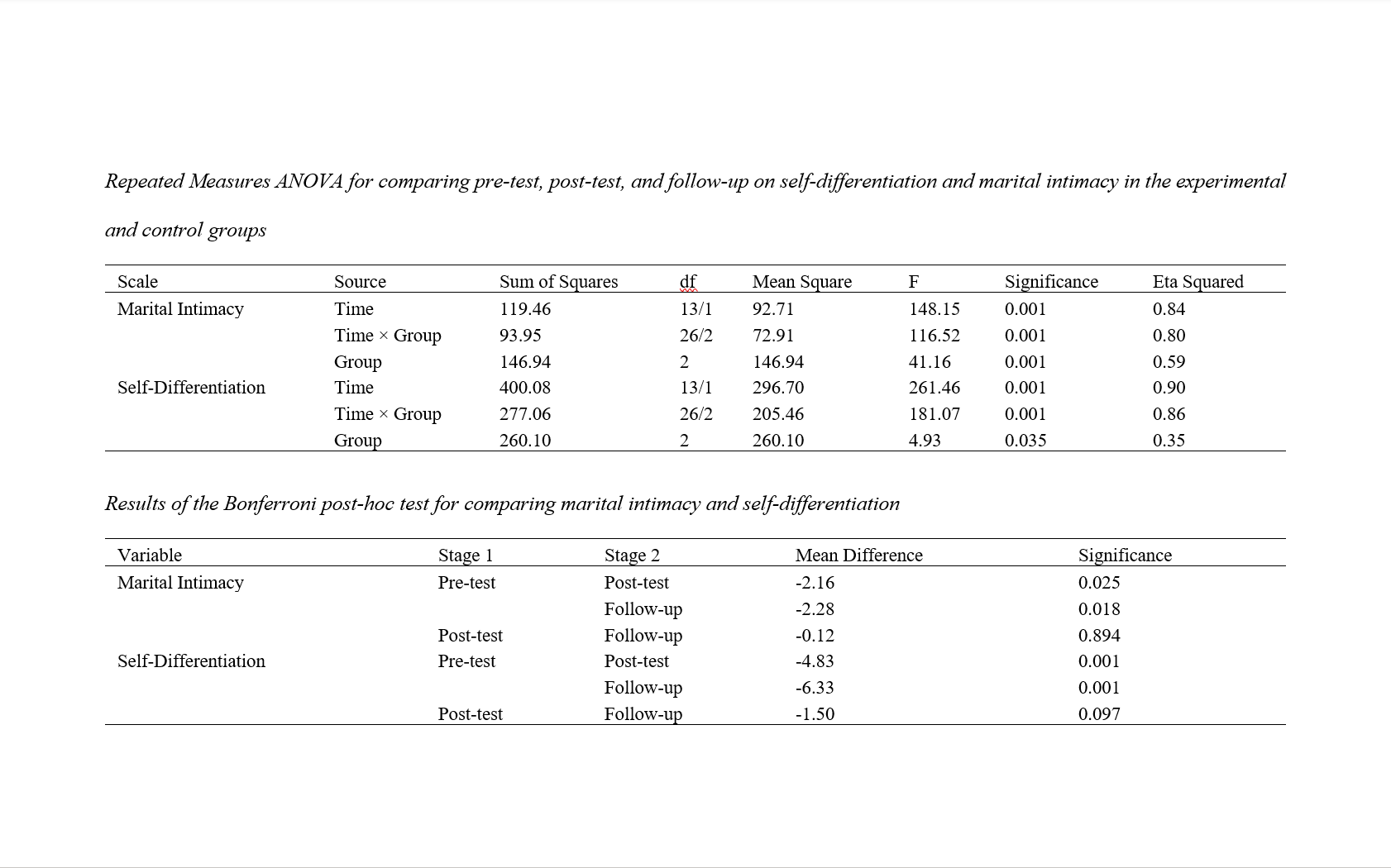Effectiveness of Paradoxical Couple Therapy on Self-Differentiation and Marital Intimacy in Couples with Marital Conflict
Keywords:
Paradoxical couple therapy, self-differentiation, communication beliefs, marital intimacy, couples with marital conflictAbstract
Objective: The aim of this study was to determine the effectiveness of paradoxical couple therapy on self-differentiation, communication beliefs, and marital intimacy in couples experiencing marital conflict.
Method: This study employed a quasi-experimental design with a pre-test, post-test, and follow-up, using a control group. The statistical population consisted of all couples with marital conflict in Tehran in 2023. Fourteen couples experiencing marital conflict were selected using a non-random, purposive sampling method, and then, through random assignment, 7 couples were assigned to the experimental group and 7 couples to the control group. The experimental group participated in 8 sessions of paradoxical couple therapy, and after dropouts, 6 participants successfully completed the therapy. The control group received no intervention. To match the number of participants, couples were randomly excluded from the control group to account for dropouts in the experimental group. The study utilized questionnaires measuring self-differentiation, communication beliefs, and marital intimacy. Data were analyzed using repeated measures analysis of variance (ANOVA) and SPSS 22 software.
Findings: The findings indicated that there was a significant difference between the post-test mean scores of the experimental and control groups. Paradoxical couple therapy significantly improved self-differentiation (F = 4.93, p = 0.035) and marital intimacy (F = 41.16, p = 0.001).
Conclusion: Based on the results of this study, interventions based on the paradoxical approach can effectively improve self-differentiation, communication beliefs, and marital intimacy.
Downloads

Downloads
Additional Files
Published
Submitted
Revised
Accepted
Issue
Section
License

This work is licensed under a Creative Commons Attribution-NonCommercial 4.0 International License.




















